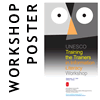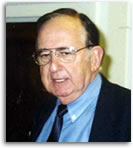
|
Keynote Speaker Dr. Forest Woody Horton, Jr. Biography Dr. Forest Woody Horton holds undergraduate degrees from the University of California at Berkeley and UCLA. Following a year of graduate work at Columbia University as a Teaching Fellow, Dr. Horton received a doctorate from the University of Lausanne in Switzerland. Virtually his entire workforce career has been working with the U.S. and foreign governments, often in multilateral international contexts, while employed by the Executive Office of the President, the State Department, USAID (The U.S. Agency for International Development) and USIS, including 8 different countries overseas. Dr. Horton has authored, co-authored or edited 30 books and monographs, and hundreds of articles, which have been published in professional journals, trade magazines and newspapers including the Wall Street Journal and the New York Times. He has consulted with or for nearly three dozen foreign governments and foreign institutions, including international intergovernmental institutions such as U.N. agencies, primarily in the areas of information policy development, national and regional library and information infrastructure strengthening. He worked with UNESCO and IFLA in planning and implementing two major international meetings of world experts in the field of Information Literacy and Lifelong Learning, one held in Prague in September 2003, and the other in Alexandria Egypt in November 2005. Dr. Horton’s current major professional interest is advocating how information professionals, especially librarians, can and should play much stronger and higher level managerial and policy roles in all kinds of public and private sector enterprises, not just technical roles for which they were academically trained. Since 2003 Dr. Horton has been a Fulbright Senior Specialist, and has undertaken grant assignments in Nepal, Chile, Peru, Slovenia, Holland, China and Egypt. Professor Albert K. Boekhorst Biography Albert K. Boekhorst is an information scientist, working at the University of Amsterdam (Netherlands), University of Pretoria (South Africa) and Tallinn University (Estonia). Since 1991 he is engaged in research on different aspects of information literacy. He has a special interest in the role of (school) libraries (on all levels) in the process of integrating IL in the (school) curriculum. On this topic he has been giving annual workshops at the Universiteit van Amsterdam. He his widely published on this theme. He serves as a reviewer for several (electronic) journals and is among others a member of the Editorial Board of Education for Information. Since 2007 he is a member of IFLA’s Standing Committee on Information Literacy, were he has the position of Information Officer. Furthermore he is member of EFIL (European Federation for Information Literacy) and committee member of ENSIL (European Network for School Libraries and Information Literacy). He participated in several UNESCO expert meetings on the topic. He coordinates an UNESCO project Training The Trainers in Information Literacy. See further www.albertkb.nl Keynote Address The Role of Librarians in the Development of Information Literacy Policies, Programs and Practices Abstract Librarians, especially school and university librarians, and media librarians, can be fairly credited with being the key driving forces in the development of the information literacy concept. While librarianship, libraries, librarians and information literacy are closely allied, and belong to the same overarching discipline, there are important distinctions between them in terms of their role(s) vis-à-vis the continued development of the Information Literacy paradigm. But the speaker’s main focus in his remarks at this UNESCO workshop in Ankara is to concentrate in a positive way on some of the strategic roles which he foresees librarians playing in the development of information literacy policies, programs and practices in the “real world” - - that is, in institutions, in organizations, in both the public and private sectors. Among the role(s) the speaker will discuss are:
|


